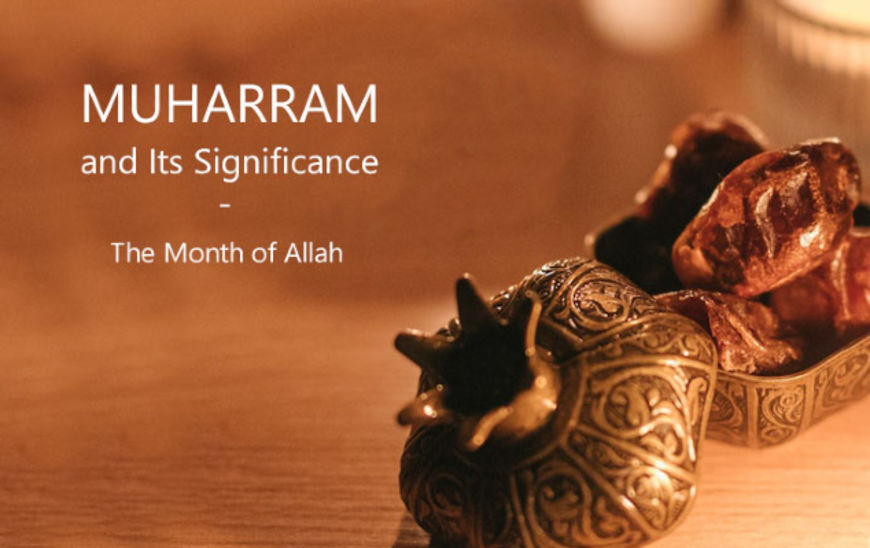The History of Muharram: Key Events and Significance in Islamic Tradition
Muharram, the first month of the Islamic calendar, is one of the holiest months in Islam. It holds immense historical and spiritual significance for Muslims worldwide. Known as the "Month of Allah," Muharram is a time of reflection, prayer, and commemoration. This article prepared by yantar.ae delves into the key events associated with Muharram, shedding light on its profound meaning in Islamic tradition.
The Sacredness of Muharram
The Quran and Hadith emphasize the sanctity of Muharram. It is one of the four sacred months in Islam, during which acts of violence and war are forbidden. This period calls for increased devotion, kindness, and self-discipline. Prophet Muhammad (peace be upon him) referred to Muharram as "Allah's month," highlighting its unique status among the lunar calendar months.
Fasting during Muharram is highly recommended, especially on the 10th day, known as Ashura. According to Islamic tradition, fasting on this day expiates sins from the previous year. This practice was endorsed by the Prophet (peace be upon him), who also encouraged Muslims to fast on the 9th or 11th day to distinguish their tradition from others.
The Day of Ashura
Ashura, the 10th day of Muharram, stands out as a day of deep spiritual and historical significance. Several important events are associated with this day, both in pre-Islamic and Islamic history.
Deliverance of Prophet Musa (Moses)
Ashura commemorates the day when Allah saved Prophet Musa (peace be upon him) and the Children of Israel from Pharaoh's tyranny. The Quran recounts the miraculous parting of the Red Sea, which allowed Prophet Musa and his followers to escape while Pharaoh and his army drowned. This event symbolizes Allah's mercy and justice.
The Tragedy of Karbala
For many Muslims, particularly Shia Muslims, Muharram is a time of mourning for the martyrdom of Imam Hussein (peace be upon him), the grandson of Prophet Muhammad (peace be upon him). In 680 CE, on the plains of Karbala in present-day Iraq, Imam Hussein and his small band of supporters faced the forces of Yazid, the Umayyad caliph.
Despite their small numbers, Hussein and his companions demonstrated unparalleled courage and steadfastness. Their tragic martyrdom on the 10th of Muharram is remembered as a stand against tyranny and oppression. This event, known as the Battle of Karbala, serves as a powerful reminder of the values of justice, sacrifice, and resistance against injustice.
Commemorations and Practices
The way Muslims observe Muharram varies between Sunni and Shia traditions, reflecting the diversity of the Muslim community.
Sunni Practices
Sunni Muslims often focus on fasting during Ashura, reflecting on the story of Prophet Musa and seeking Allah's forgiveness. It is a day for self-purification and gratitude.
Shia Observances
For Shia Muslims, Muharram is a period of mourning. The first ten days are marked by gatherings, known as majlis, where the story of Imam Hussein's martyrdom is recited. Devotees wear black as a symbol of grief and participate in processions to honor the sacrifices of Karbala. Acts of charity, such as distributing food and water, are also common during this time.
Key Lessons from Muharram
Muharram offers valuable lessons for Muslims. It reminds them of the power of faith, the importance of justice, and the need to stand firm in the face of adversity. The stories linked to this sacred month inspire believers to reflect on their own lives and strive to uphold Islamic values.
The martyrdom of Imam Hussein, in particular, resonates deeply with themes of social justice and moral integrity. His unwavering stand against tyranny continues to inspire movements for justice across the globe, transcending religious and cultural boundaries.
Muharram in Contemporary Times
Even today, Muharram remains a time of unity, reflection, and charity for Muslims worldwide. While the rituals may differ, the essence of the month remains rooted in devotion and remembrance. It encourages individuals to strengthen their relationship with Allah and work towards bettering themselves and their communities.
Many also use this time to engage in acts of kindness, help the needy, and foster a sense of brotherhood. The shared reverence for this month unites Muslims across sects, reinforcing the common values that bind them together.
The history of Muharram is rich with spiritual meaning and historical significance. From the deliverance of Prophet Musa to the sacrifice of Imam Hussein, the events associated with this month serve as enduring reminders of faith, resilience, and the pursuit of justice.
As Muslims around the world observe Muharram, they are not only honoring their history but also renewing their commitment to the principles of Islam. By reflecting on the lessons of this sacred month, believers find guidance and inspiration to navigate the challenges of life with faith and perseverance.
In the end, Muharram is more than a historical month; it is a time to reconnect with Allah and strive for a life rooted in compassion, justice, and devotion.













